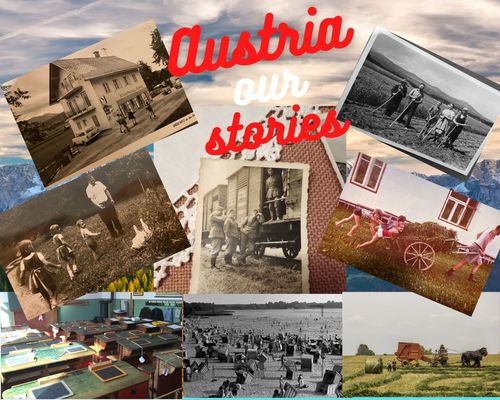
We used our own photos, pexels and pixabay.
More photos can be found in our material folder #3_Past_Austria
Step 2
Further interaction - on each subpage a TwinBoard will be added and partner sudents, after having read the story, will create GIFs (inspired by GIF IT UP competition by Europeana) - HOW TO MAKE A GIF (1st link for easy GIFs)
Step 3 (if possible)
Interactive online sessions between partner classes focused on their country stories